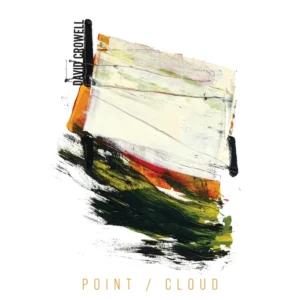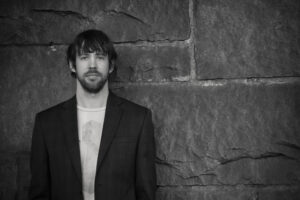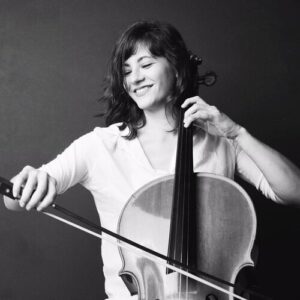David Crowell
Point/Cloud
Better Company Records
Composer and multi-instrumentalist David Crowell has minimalist bona fides: he played in the Philip Glass Ensemble for nearly a decade. But Crowell draws from a number of traditions in his work: prog rock, jazz, folk, and other contemporary classical idioms. His latest, Point/Cloud, features works for percussion, guitars, and a moving finale for voice, cello, and Crowell’s instrumentation.
Sandbox Percussion performs Verses for a Liminal Space. At nearly a quarter of an hour, it shows Crowell’s keen sense of pacing. He conceives of the piece as being cast in three verses. There is a totalist ambience to its opening, with forceful drums combined with pitched percussion to rousing effect. The middle of work is a beautiful slow section. The drums gradually recede to only articulating emphasized beats, and then fall into silence. Pitched percussion arpeggiations and a repeated semitone form a ground that gradually adds melodic content and bowed crotales. Shimmering glockenspiel transitions the work back to the fast tempo, with cascading riffs in the xylophone and the drums gradually returning, first just to accentuate and then to provide hemiola as metric undergirding. The pitched percussion likewise engages in metric transformations. Just when it seems that things are about to heat up, Verses suddenly ends, denying expectations. This is a common feature of Crowell’s music, and it reminds me of Schumann’s Papillions, where each movement feels like entering and exiting a room. The door closes and the sound world changes.
The title work for overdubbed guitars is played by Dan Lippel. Cast in three movements, it begins with a classical guitar solo that is soon joined by electric guitars in cascading repetitions and arpeggiated harmonies. The influence of Electric Counterpoint is clear. Crowell, however, also incorporates prog rock elements reminiscent of Steve Howe and Steve Hackett, particularly in the supple middle movement. However, in the final movement polyrhythmic ostinatos return the music to the orbit of Steve Reich. Lippel plays all the various components of this considerable challenging work with precision, employing a variety of timbres and dynamic shadings.
Lippel is joined by another guitar virtuoso, Mak Grgic, on the classical guitar duo Pacific Coast Highway. Once again, polyrhythms are omnipresent, and there is a sense of jazz and flamenco à la the Al Di Meola, John McLaughlin, and Pace de Lucia Friday Night in San Francisco album. The playing is authoritative, nuanced, and propulsive.
Vocalist and cellist Iva Casian-Lakoš collaborates with Crowell on the final piece, 2 Hours in Zadar. The work contrasts with the rhythmic effervescence of the previous three, moving at a slow tempo and exploring gradually evolving textures. The text is by Casian-Lakoš’s mother, Nela Lakoš. The piece begins with a sample of Nela Lakoš speaking Croatian. Casian-Lakoš plays shards of tunes and glissandos, singing with an exquisite fragility. Crowell’s sustained electronics and frequent wide glissandos, some manipulated samples of the voice, ghost the singing and cello lines, creating a compound melodic framework that is both colorful and vulnerable in presentation. Crowell hews closer to Sigur Rós than the influences found in the previous pieces. It provides the program with a touching valediction. Point/Cloud is uniformly excellent, a recording that is among my favorites thus far in 2024.
Christian Carey



